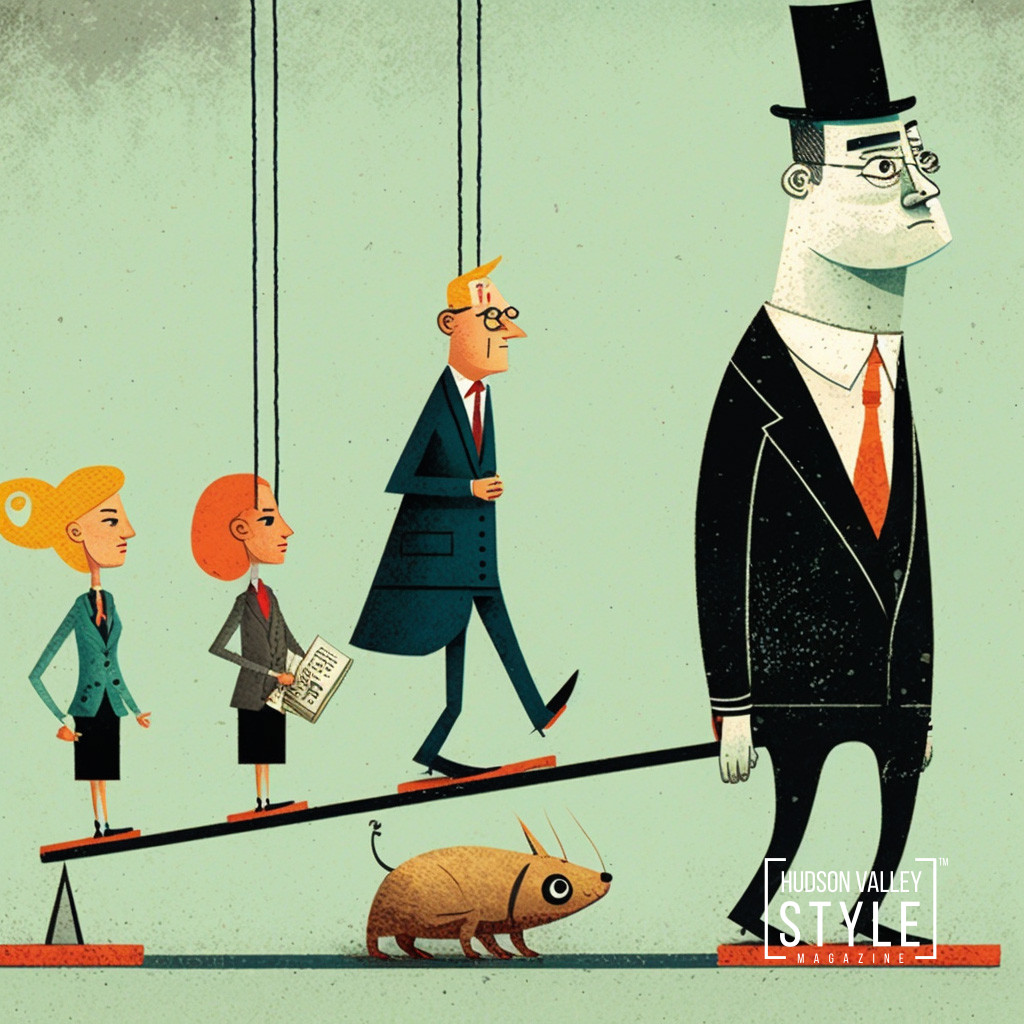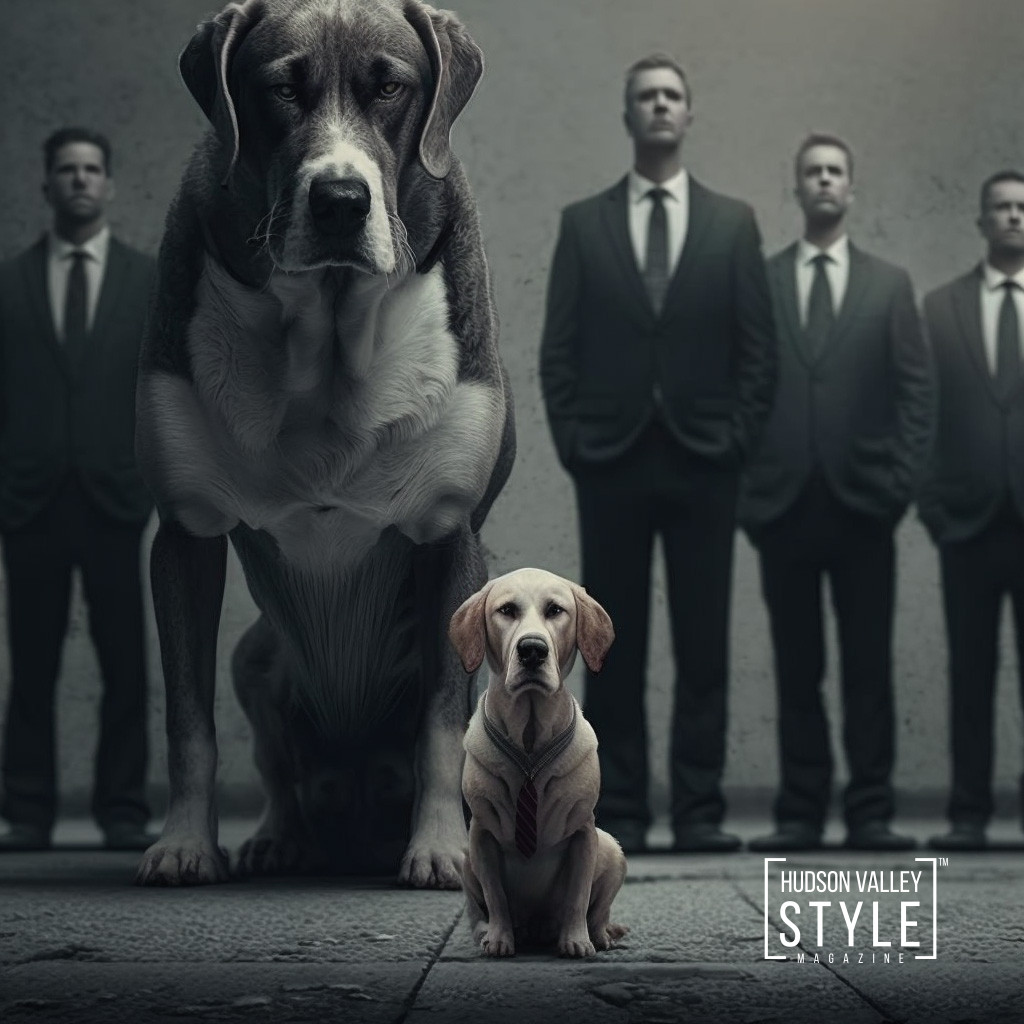The word mediocre gets thrown around an awful lot these days, but when it comes to corporate culture, the term can accurately be applied. Specifically, in the hiring process, companies will often go with the safest candidate available, regardless of their creativity or other unconventional traits. The result is a homogenous workforce that fails to innovate or challenge the status quo. Here’s why this happens and how you can change your company’s hiring practices to avoid making the same mistake as so many others before you.
The Corporate Culture of Obedience and Why Mediocre Talent Is Hired – by Maxwell Alexander, MA, BFA, BS, EIC, Hudson Valley Style Magazine
Does your business promote creativity?
If a company’s business model requires employees to be creative in order to succeed, it needs to make sure that workers are still able to be creative at work. That’s where corporate culture comes into play. It can either serve as a barrier or an enabler for creativity; having an anything-goes environment with lots of freedom to experiment can often be more conducive to innovation than a highly traditional office space. When creating your business plan, you should consider how your current environment and/or corporate culture might need some tweaks in order to foster creativity if you have any hope of growing your enterprise in the long term.

Are you hiring unconventional people?
Have you ever noticed how corporations tend to hire mediocre talent? Have you ever wondered why that is? There are certainly more than a few reasons, but first, we need to look at what it means to be an unconventional candidate. Conventional candidates are those who are blindly obedient and have worked hard in high school or college and ended up with decent grades. These individuals generally took classes that they thought would get them through. Then they got great scores on their SATs or ACTs, graduated with honors, went on to great schools, scored internships with big firms, landed entry-level jobs at great companies, did some good work there, and eventually moved up into positions of authority. They were always dependable, and able to execute what was asked of them without fail or any questions. They had great attitudes and made things happen by working really hard for the people (or corporate systems) above them. In today’s exponentially evolving creative economy, these conventionally stiff dinosaurs are the ones who drive billion-dollar corporations to the brink of collapse given the economic ice age environment we have entered recently. If you want to spot one, just ask them, how their OnlyFans account is doing, and if they finally cracked the quadrillion-dollar riddle of content monetization. If the answer is a blank face, chances are you are talking to one of those dinosaurs. Sound like someone you know? It might be your sister or your brother or your boss; it might even be you!

If so, you might be missing out on opportunities by not challenging yourself by stepping outside of the box, being honest with yourself, living an actual life, and acting like a human being that you could be personally proud of. Companies are beginning to hire unconventional talent because they see something in these unconventional workers: innovation, resilience, and adaptability. Innovative employees never work out of your moldy office, but challenge themselves beyond what’s expected of them or what society has told them they should do. Successful engineers have 2 or 3 (failed or successful) startups under their belt and they know how to design products that make sense in today’s market. Creative marketers stay late at night socializing and shaking their asses on TikTok while learning about new consumer trends so that when the time comes to sell your product, they already have an idea of where popular culture is headed next and how advertising agencies can best capture consumer attention before everyone else does.

And if your newly hired marketing director has only 128 followers on their personal Instagram account – your corporation has already failed, because your hire does not know anything about what it means to be an influencer and they will not help your company to be one either. And if you are a white, old, privileged male, you might say “Well, why does my company has to go down to the level where people are and be an influencer? We’ve got a great product and perhaps we’ll just gaslight consumers into buying our stuff just like in the good old days?” Hell, no! Patriarchy has been officially decimated (legacy media might tell you otherwise) and you won’t gaslight anyone into anything anymore, so you’ll have to play by the new rules and they are not yours to bend.
Supposedly innovative companies with billion-dollar valuations go bankrupt overnight just because they hired mediocre and obedient talent. Want proof? Look up the biggest stock market losers and go see job descriptions of positions they were hiring for a month ago. All you’ll see are “please fit into this box and that box” and “execute my orders without questions” templates created by clueless HR “professionals” that know nothing about how to succeed in any business because they never owned or ran one. Today they terminate all those mediocre hires because the company didn’t make it – it got as stiff and obsolete as the Harward grads it hired.

How to spot mediocrity in the workplace
While corporations may hire mediocre talent to save money, it’s not always a case of being frugal. Many companies fail to understand that hiring average workers could actually drive up costs in other areas. For example, if your new employee doesn’t fit into your existing corporate culture—and thus is less productive as a result—the company could lose out on productivity from employees who don’t work well with him or her. The good news? If you know what traits indicate mediocrity, you can better avoid getting stuck with an underperforming team member.
When hiring for positions at a company with an established culture, there are telltale signs to watch for: No Passion for Their Job: Every worker should have some passion for their job–if they don’t, you’ll get someone who does things half-heartedly instead of putting forth maximum effort. They Will Compromise Without Resistance: A mediocre candidate is not an independent thinker and won’t resist doing things that go against his or her morals and values.
It’s time to fire your human resources department
You’ve got to stop playing it safe with mediocre talent. The truth is, conventional corporate culture has nurtured a system of mediocrity that’s killing your company. Don’t be afraid to take an unconventional approach when hiring talent; you could be putting your whole business at risk by not doing so. There are many reasons behind why corporations hire mediocre talent, but it all boils down to one basic concept: greed. Greed drives companies to do whatever they can get away with in order to increase their profit margins in any way possible–even if that means lowering performance standards and churning out less-than-capable employees. It doesn’t matter how much revenue they generate or how big their following becomes as long as they keep raking in money hand over fist.

The problem is most CEOs don’t understand just how big of a liability mediocre talent can be for their company. For example, did you know that on average, $45 million dollars was lost every year due to bad hires? That number might seem high, but even small losses throughout your organization begin to add up quickly. Your HR department is an unnecessary and often destructive layer between leadership and high-performing creative hires. It is especially important when it comes to hiring creative positions. Do not let the “Susan from HR” come even close to a superstar designer, or a photographer, or producer (if she is not a superstar designer, producer, or a photographer herself), because your candidate will run for the hills after you ask them about teamwork. Because yes, teamwork is overrated and it’s the number one killer of innovation and creativity in the workplace. The entire process of hiring should be done by a hiring manager with the level of expertise in the subject matter you are looking for.
3 reasons why conventional businesses fail
- 1. The conventional business fails to plan for what’s next. The world is evolving in real time. Companies that don’t focus on adapting to new technology, new ways of doing things, or ever-changing customer expectations find themselves out of a job.
- The conventional business is too inflexible. Conventional business focuses on doing things one way because it has always done them that way. This type of thinking limits growth opportunities as well as opportunities for employees to shine by taking risks or trying something new and innovative.
- Conventional businesses build teams around roles rather than skill sets. This approach not only brings in talent based on job title instead of talent based on skillset but also fails to nurture potential leaders who can help keep your company relevant in an evolving marketplace.
3 reasons why unconventional businesses succeed
- 1. The unconventional business focuses on how things should be done versus how they are done. The best way to do something is always going to change, so if you aren’t thinking about ways that you could change a process, technology, or strategy, you will fall behind in no time at all.
- The unconventional business is flexible enough to make quick changes when needed. If a new customer wants something or a competitor introduces a better product, the ability to pivot quickly is crucial. For example, some people can’t stand change; they live in fear of it. If you’re an owner of an unconventional business you have learned to welcome change, which frees up your employees to accept that mistakes are part of what makes us human and nothing is ever perfect.
- The unconventional team uses talent for potential rather than title. The best teams are made up of people who are willing to work hard, find new solutions, and learn new skill sets to help your company thrive.
You can’t build a great company on a foundation of mediocre employees or leaders whose only skill is that they have been there longer than anyone else or have held a certain position longer than anyone else. Unconventional businesses bring in employees based on their skill sets, not their titles; they don’t hire based on tenure, but instead look at an employee’s track record of accomplishments and success—because when you focus more on results versus longevity, it opens up opportunities for you to make sure you’re getting what you want from each member of your team every day.





